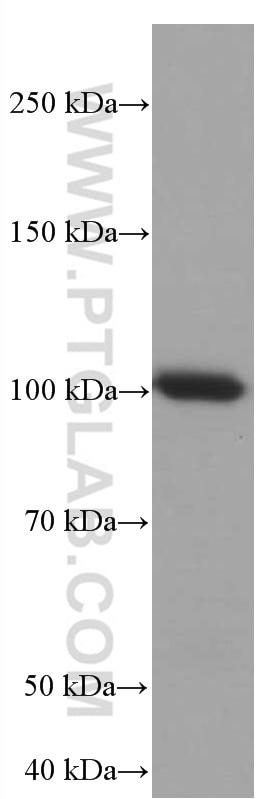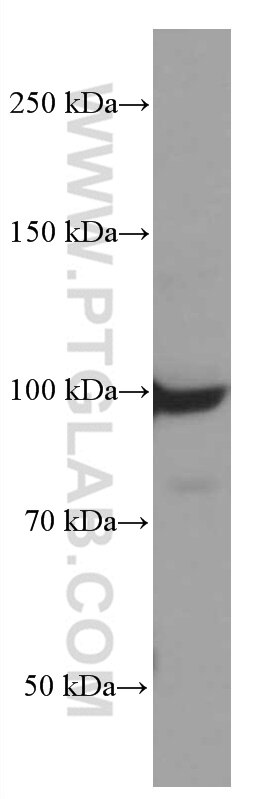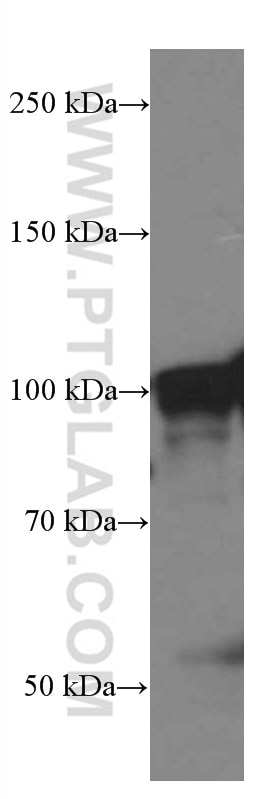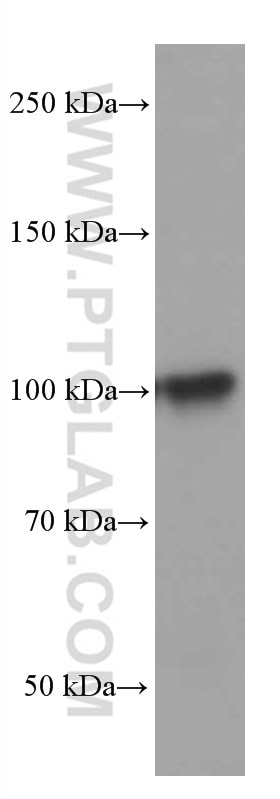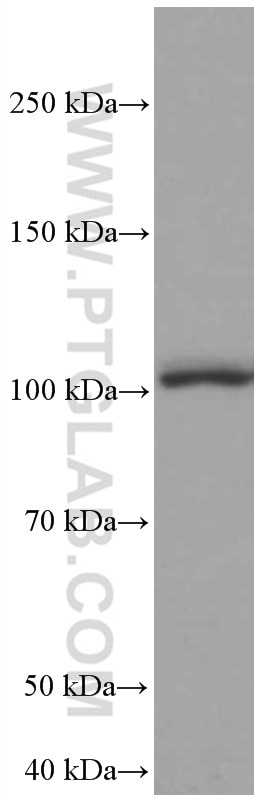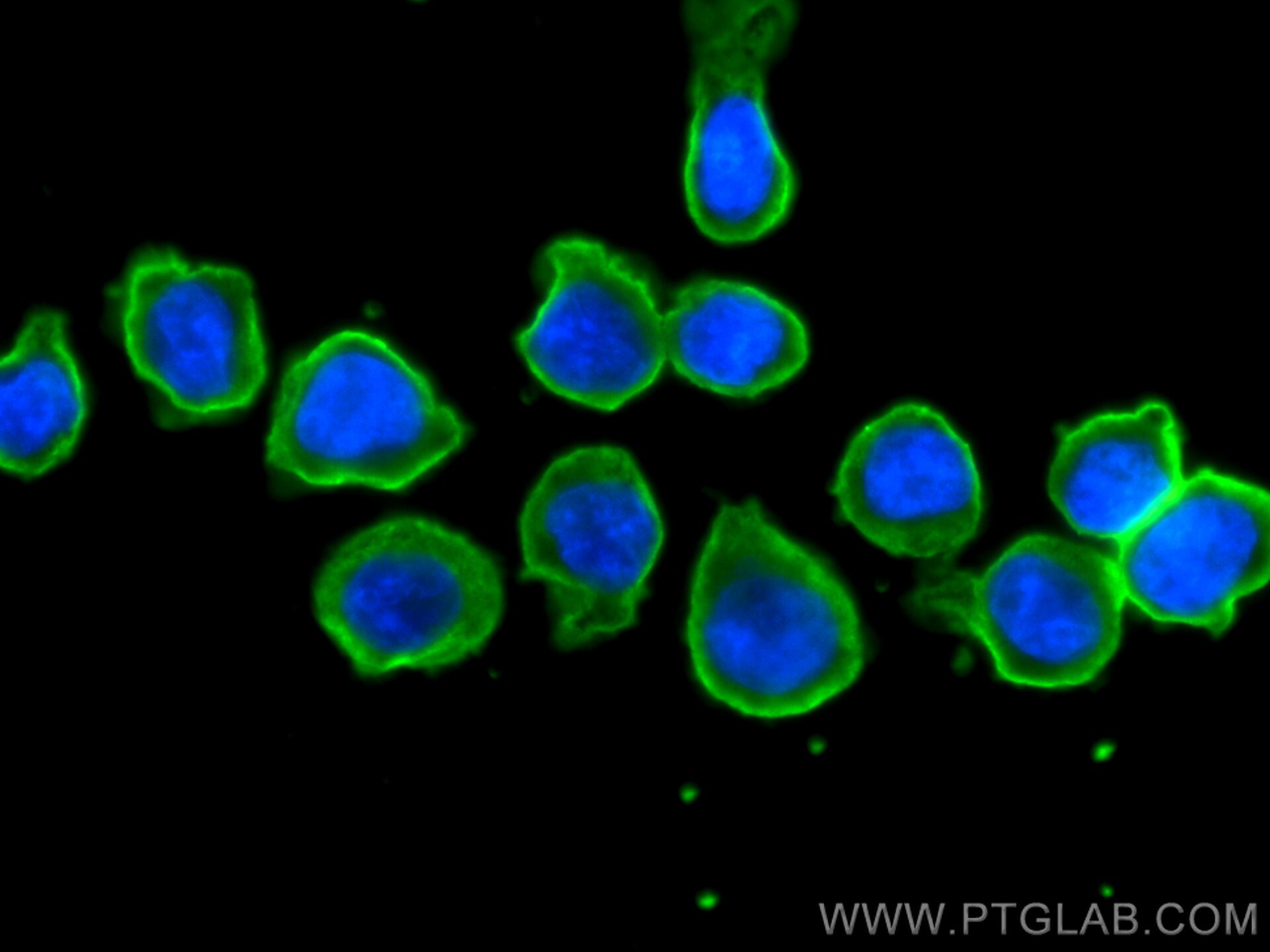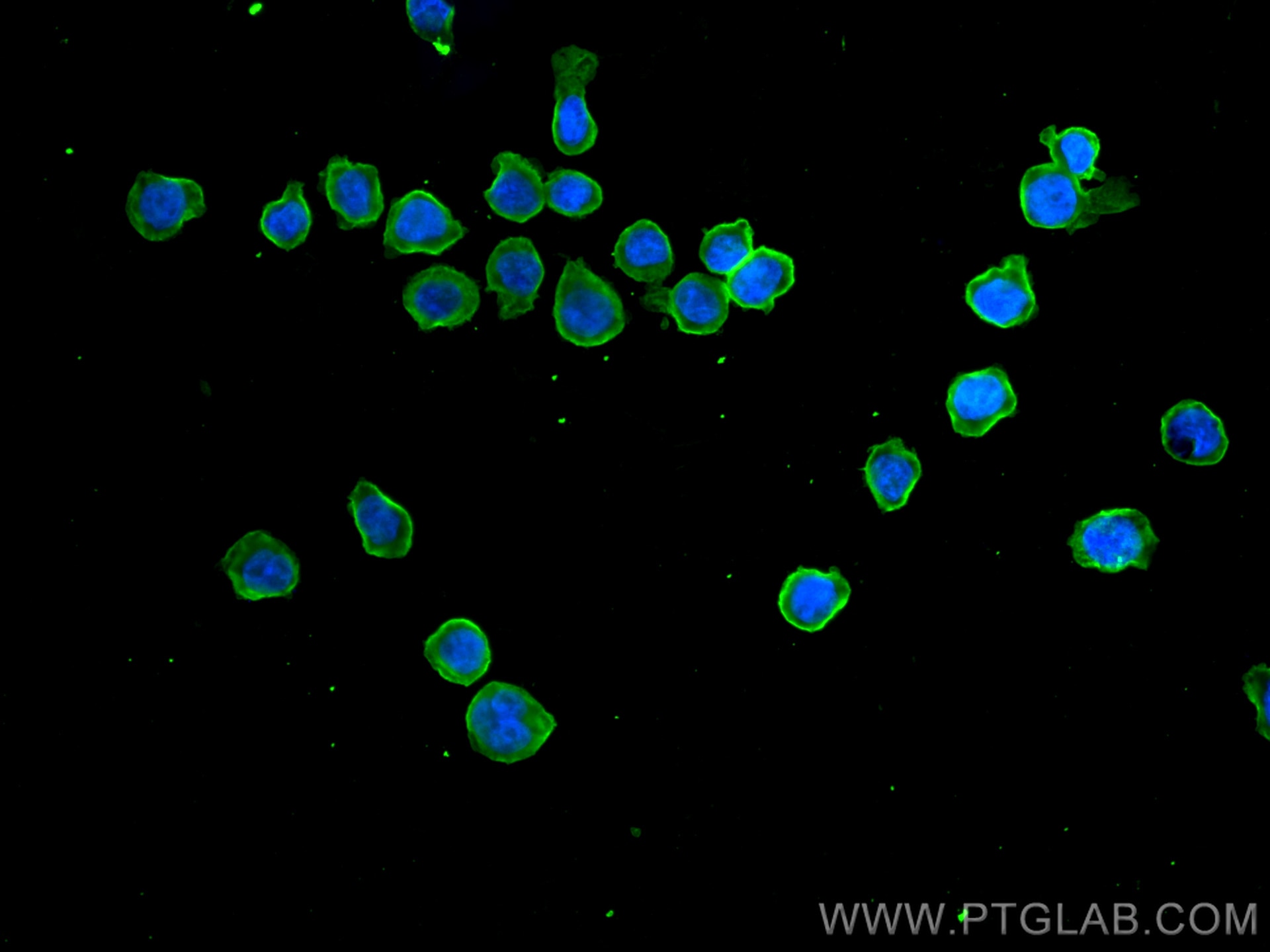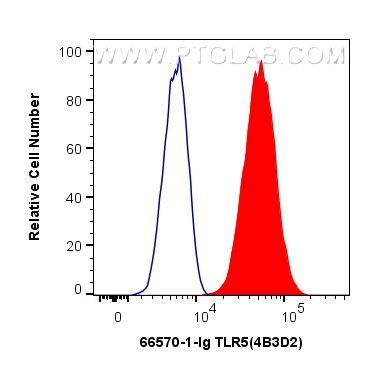TLR5 Monoklonaler Antikörper
TLR5 Monoklonal Antikörper für WB, IF/ICC, FC (Intra), ELISA
Wirt / Isotyp
Maus / IgG1
Getestete Reaktivität
Hausschwein, human, Maus, Ratte
Anwendung
WB, IF/ICC, FC (Intra), ELISA
Konjugation
Unkonjugiert
CloneNo.
4B3D2
Kat-Nr. : 66570-1-Ig
Synonyme
Geprüfte Anwendungen
| Erfolgreiche Detektion in WB | A549-Zellen, HeLa-Zellen, Rattenmilzgewebe, RAW 264.7-Zellen, THP-1-Zellen |
| Erfolgreiche Detektion in IF/ICC | THP-1-Zellen |
| Erfolgreiche Detektion in FC (Intra) | THP-1-Zellen |
Empfohlene Verdünnung
| Anwendung | Verdünnung |
|---|---|
| Western Blot (WB) | WB : 1:1000-1:6000 |
| Immunfluoreszenz (IF)/ICC | IF/ICC : 1:400-1:1600 |
| Durchflusszytometrie (FC) (INTRA) | FC (INTRA) : 0.40 ug per 10^6 cells in a 100 µl suspension |
| It is recommended that this reagent should be titrated in each testing system to obtain optimal results. | |
| Sample-dependent, check data in validation data gallery | |
Veröffentlichte Anwendungen
| WB | See 1 publications below |
Produktinformation
66570-1-Ig bindet in WB, IF/ICC, FC (Intra), ELISA TLR5 und zeigt Reaktivität mit Hausschwein, human, Maus, Ratten
| Getestete Reaktivität | Hausschwein, human, Maus, Ratte |
| In Publikationen genannte Reaktivität | Maus |
| Wirt / Isotyp | Maus / IgG1 |
| Klonalität | Monoklonal |
| Typ | Antikörper |
| Immunogen | TLR5 fusion protein Ag13840 |
| Vollständiger Name | toll-like receptor 5 |
| Berechnetes Molekulargewicht | 858 aa, 98 kDa |
| Beobachtetes Molekulargewicht | 100 kDa |
| GenBank-Zugangsnummer | BC109119 |
| Gene symbol | TLR5 |
| Gene ID (NCBI) | 7100 |
| Konjugation | Unkonjugiert |
| Form | Liquid |
| Reinigungsmethode | Protein-G-Reinigung |
| Lagerungspuffer | PBS with 0.02% sodium azide and 50% glycerol |
| Lagerungsbedingungen | Bei -20°C lagern. Nach dem Versand ein Jahr lang stabil Aliquotieren ist bei -20oC Lagerung nicht notwendig. 20ul Größen enthalten 0,1% BSA. |
Hintergrundinformationen
TLR5 belongs to the Toll-like receptor family which are important in the innate immune response to pathogens. TLRs are highly conserved from Drosophila to humans and share structural and functional similarities. TLR5 is known to recognize bacterial flagellin from invading mobile bacteria. TLR5 acts via MYD88 and TRAF6, leading to NF-kappa-B activation, cytokine secretion and the inflammatory response. Mutations in TLR5 gene have been associated with both resistance and susceptibility to systemic lupus erythematosus, and susceptibility to Legionnaire disease.
Protokolle
| PRODUKTSPEZIFISCHE PROTOKOLLE | |
|---|---|
| WB protocol for TLR5 antibody 66570-1-Ig | Protokoll herunterladen |
| IF protocol for TLR5 antibody 66570-1-Ig | Protokoll herunterladen |
| STANDARD-PROTOKOLLE | |
|---|---|
| Klicken Sie hier, um unsere Standardprotokolle anzuzeigen |
